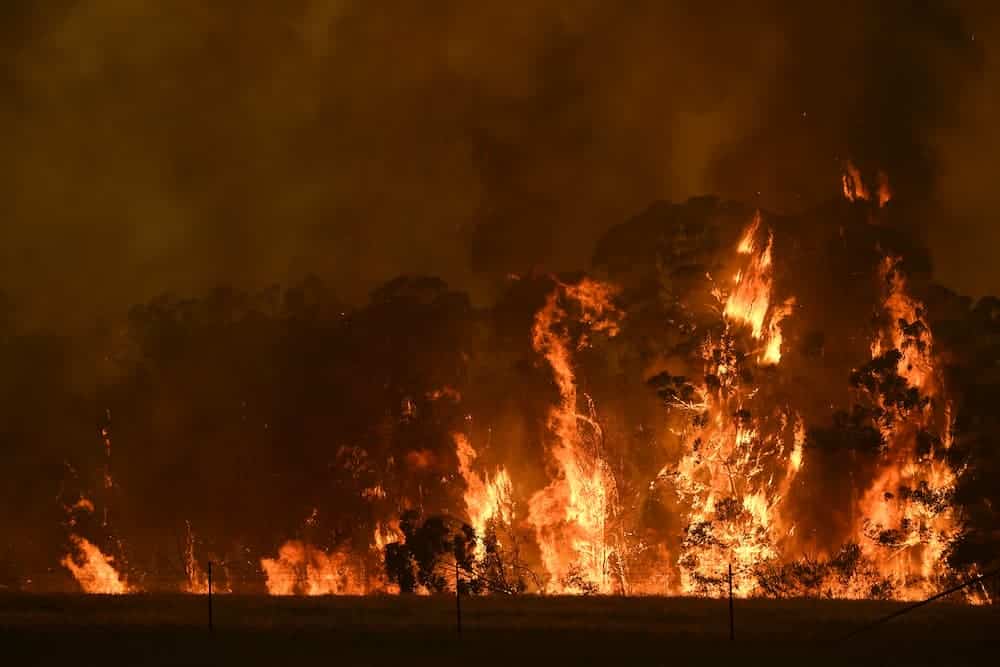As Australia enters another El Nino cycle, police must prepare for more frequent and severe bushfires, researchers from the Australian National University (ANU) argue.
The study, believed to be the world’s first empirical study of policing during bushfires, examines policing in a regional Victorian town during the unprecedented Black Summer bushfires of 2019–2020.
The study found that a collaborative, community-focused model of policing can enhance preparedness and response capabilities during bushfire disasters, but the increasingly prolonged and recurring nature of climate-induced disasters presents challenges for police organisations.
“The policing landscape is being transformed by the disaster risks associated with climate change, and police forces globally are struggling to adapt,” Associate Professor Jarrett Blaustein, lead author of the study from the ANU School of Regulation and Global Governance, said.
“Emergency management work requires police to divert personnel and resources from ‘business as usual’ policing activities.
“This may limit their ability to perform other core functions, both in the areas affected by a particular crisis, but also potentially in other parts of the jurisdiction.”
An ACT Policing spokesperson said the agency “regularly work closely with ACT emergency services in preparation to respond to a potential emergency situation, such as a significant bushfire response.
“ACT Policing members played an important role assisting with the bushfire response in previous emergencies in the territory, including in January 2003 and more recently in summer 2019/20.
“More broadly, modern policing focuses on building relationships with the community, as well as looking to address the causes of crime in an effort to reduce overall criminal acts. This trust with the community allows police to effectively engage in the response effort to a major emergency situation, such as a bushfire.”
The ANU researchers say regional and remote Australia bears the brunt of these disasters: police and emergency management resources are sparse there, and critical infrastructure is vulnerable or limited.
Disasters of the scale of the Black Summer bushfires also affect officers’ wellbeing, especially in regional communities.
“In rural areas, police officers are often members of the communities they serve,” Associate Professor Blaustein said. “In an emergency, not only are they working long shifts to protect the community, but they’ve also got their own families and properties to worry about.
“Police work can already be extremely demanding – both mentally and physically – and climate change threatens to make it even more challenging.
“Policymakers need to be proactive in supporting officers on the ground, both for their wellbeing and to ensure there aren’t even bigger barriers to recruiting and retaining police.
“Our research reveals what’s possible in a best-case scenario, where police understand disaster risks and have invested considerable time and energy into improving their emergency management capabilities.”
However, the ANU researchers state, there may be additional challenges in jurisdictions where the relationship between the police and community is strained.
“We must consider that police may not be able to replicate this approach in demanding urban and suburban areas, particularly those where police find themselves in conflict with large segments of the community,” study co-author and PhD researcher Maegan Miccelli said.
While police cannot solve the climate crisis, the researchers argue that they must urgently acknowledge its disruptive and potentially catastrophic effects and adapt accordingly.
“Australia is a ‘canary in the coalmine’ of climate change, and disasters caused by natural hazards will have a transformative impact on communities across the country,” Associate Professor Blaustein said.
“Now is the time for police executives to initiate and accelerate this adaptive process and establish our country as a global leader and innovator in proactive, consent-based and collaborative approaches to emergency management policing.”
The study has been published in the International Journal of Disaster Risk Reduction.



